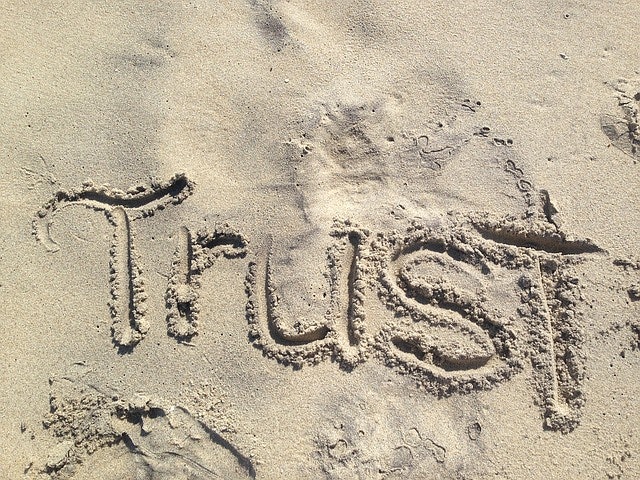Trustworthiness & Ethics
All products and services featured are independently selected by WikiJob. When you register or purchase through links on this page, we may earn a commission.
When applying for a new job, it is important to present yourself to your potential employer in the best possible light. Usually, this means demonstrating your competencies and skills, as well as discussing your background and training.
Your skill set is not the only thing the employer will be assessing, of course. They will also want to see evidence of your commitment, passion and trustworthiness.
Trust is vital for a business or organisation to function properly; not only for client-staff relationships but also relationships between employees. As a result, interviewers often ask questions that reveal certain aspects of your personality – often testing your morality and ethics.
This guide will explore how trustworthiness is assessed in an interview environment, and how you as an interviewee can demonstrate your professional integrity.
Why Is Trustworthiness a Key Value for Some Employers?
Trust and integrity are integral to the success of any business or organisation, since:
- Trust helps the formation of strong relationships between employees. Studies have shown this leads to the fostering of a better work environment. When employees trust each other and their management, productivity often increases while absence from work decreases.
- Trust in each other allows for better teamwork. Trust removes the need to second-guess what a colleague may say or do, as you have faith in their ability to get things done.
- Trust is vital in employee-customer relationships. The customer/client must trust implicitly that the employee knows what they are doing, and that they work with the client's best interests at heart. This is a key trait that employers look for during the interview process.

Top 5 Interview Questions Regarding Trust
One of the main ways in which employers test for trustworthiness, integrity and ethics during the application process is through asking competency-based questions.
These questions explore key traits such as:
- Problem-solving
- Determination
- Quick thinking
- Accountability
- Responsibility
- Trustworthiness
Typically, interview questions that are asking about trust are not obvious at first. It is highly unlikely that a potential employer will turn around and ask, "Why should we trust you?"
Instead, their questions will be carefully structured, revelatory and based on your specific application.
While interviews can be intimidating and it is important to show the most positive aspects of yourself, these questions alone prove why it is important to be honest. That way, the employer will ascertain what you genuinely offer to the company and that they can trust you.
Below are some typical interview questions regarding trust, with suggestions on how to answer them.
To find out which jobs fit your personality best, visit our partner CareerFitter and take the Career Test for FREE.
1) Tell Me About Yourself
This is probably one of the most common interview questions. It helps the employer to gain a brief insight into the kind of person you are and what you are passionate about. As a result, it allows you to showcase your trustworthiness.
Remember, it is important for your answer to be succinct, and fine-tuned to the role you are applying for.
For example, if you are applying for a position in customer service, you may choose to mention that you are a people person and really enjoy talking to others.
Do not try to embellish your personality or go overboard on your strengths – employers are looking for answers that feel genuine.
2) When Have You Had to Overcome Conflict in the Workplace?
This question, or similar conflict-resolution based questions, give employers an insight into how you work under pressure.
Conflict at work can occur regularly, particularly in high-stress working environments, where your conflict-resolution skills could be critical. As such, answer this question honestly; it's unlikely you've never witnessed or experienced any conflict in the workplace.
Instead, explain the situation in an unbiased, controlled manner and discuss the steps you took to resolve the issue. This shows accountability, maturity and forward-thinking – skills that employers value.
3) Why Do You Want to Leave Your Current Job?
Your response to this gives an insight into your motivations at the company you are applying to join.
First, it will tell them a little bit about what you are looking for in the new job (perhaps something you felt was missing from your previous place of employment). Second, it will indicate whether you are leaving your job on good terms.
It is important to answer this question in a way that shows you are proactive and keen for change. Don't discredit or talk badly about your previous place of employment – this makes you appear not only untrustworthy but difficult to work with.
If you have previously encountered problems in the workplace, such as being fired from a position, you must say so. Potential employers will value your ability to accept that you made a mistake and are working to make positive change.
Instead of avoiding the question or lying, discuss what you learned from your previous job – and what you are doing to make sure you are a better employee in the future.
4) What Are Your Weaknesses?
This question may not seem like it would prove your trustworthiness – however, it very much does. Admitting some form of shortcoming in an environment where you are trying to sell yourself requires honesty and humility.
Do not make something up or say that your biggest weakness is that you are a perfectionist who tries too hard (this isn't really a weakness). Your candour here will help the interviewer.
5) What Would You Do if You Noticed a Colleague Was Lying?
Another way in which interviewers assess your trustworthiness is to ask questions that test your morality. Be prepared for this kind of morality question – in whatever form it may appear – and make it clear to the interviewer that you would always strive to do what is right.

Other Ways Employers Assess Trustworthiness
Interview questions are not the only way in which your trustworthiness will be assessed. You may also be required to give references from previous employers or teachers. When applying for jobs, try to have two or three people at hand to provide references upon request.
Your CV and cover letter will also be assessed, so be sure to present yourself in the best way possible. Remember, a potential employer will see these before they see you.
Don't lie or embellish your CV to make yourself stand out from the crowd – it is easy for employers to fact-check this information. You really don't want them to find out that you aren’t who you say you are.
If you are uncertain about the strength of your CV, there are plenty of resources online that provide guidelines or advice on best practice. Check out our other articles on how to prepare for an interview to make sure you are ready.
Final Thoughts
To conclude, the most important thing to remember when applying for a job or attending an interview is to be honest.
Honesty will prove to an employer that you are trustworthy. An interviewee who appears arrogant, or seems to be lying, will appear untrustworthy and this significantly lowers their chances of employment.
Instead, confidently and honestly detail your experiences, training or perseverance, and make yourself an attractive and highly employable candidate.





